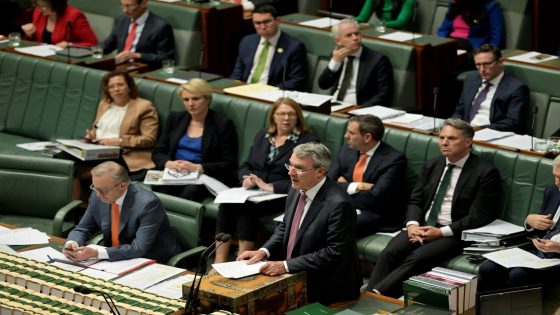Saul “Canelo” Alvarez answered the question with a straight face Wednesday afternoon, as if there weren’t a 6-foot-2, 175-pound elephant in the room.
Premier Boxing Champions’ Ray Flores, the moderator of the news conference, asked Alvarez how he decided to square off against huge underdog Edgar Berlanga on Saturday night at nearby T-Mobile Arena in Las Vegas.
“You know, I fought everybody already,” Alvarez replied before referring to a conversation he had with his manager and trainer, Eddy Reynoso. “So, I was on vacation and Eddy called me. They was working on the fight and I say, ‘You know, whatever — I don’t care. I fought everybody. And I think it’s a very good fight for the people. Mexico versus Puerto Rico, it’s a lotta history there, and I think it’s a great match.”
Oddsmakers, most media representatives and the vast majority of boxing enthusiasts who aren’t devout Alvarez fans wholeheartedly disagree. Mexico’s Alvarez (61-2-2, 39 KOs) is listed by BetMGM as a 25-1 favorite to beat Berlanga, a brash Brooklyn native who possesses the record (22-0, 17 KOs) and rankings, yet not the requisite conquests, to warrant a shot at Alvarez’s WBC and WBO 168-pound championships.
Alvarez’s comments were particularly ridiculous because even his staunchest supporters know that boxing’s biggest star isn’t telling the truth.
He hasn’t “fought everybody already.” The four-weight world champion has spent much of the past two years avoiding David Benavidez, “The Mexican Monster,” who grew so frustrated from chasing Alvarez that he moved up from the super middleweight division to light heavyweight earlier this year.
Alvarez, 34, most recently belittled Benavidez’s unremarkable performance in his light heavyweight debut — a 12-round, unanimous points victory over former WBC 175-pound champion Oleksandr Gvozdyk on June 15 at MGM Grand Garden Arena in Las Vegas. That is Alvarez’s latest rationale for not battling Benavidez (29-0, 24 KOs) in the pay-per-view showdown most consumers seem to want.
Benavidez stopped Demetrius Andrade (32-1, 19 KOs), the former WBO middleweight champ, and out-pointed former IBF super middleweight champion Caleb Plant (22-2, 13 KOs) in his previous two fights. Benavidez, 27, was the WBC’s No. 1 contender for one of Alvarez’s titles seemingly forever and is a two-time WBC super middleweight champion who twice surrendered that title without losing a fight (once after testing positive for cocaine and again for coming in overweight).
Phoenix’s Benavidez definitely deserves a shot at Alvarez’s crowns, much more than Berlanga, and possesses the size, strength and style to knock off the sport’s undisputed super middleweight champion. The prideful Alvarez’s avoidance of Benavidez is perplexing, though, because the Guadalajara native has beaten bigger and/or better fighters during a celebrated career that will undoubtedly make him a first-ballot International Boxing Hall of Famer.
The historically ambitious Alvarez built his legacy by embracing challenges.
Alvarez was only 23 when he accepted a catch weight of 152 pounds to face Floyd Mayweather, then boxing’s pound-for-pound king, in a fight for Alvarez’s WBC 154-pound title in September 2013. Mayweather comfortably out-pointed Alvarez, who didn’t officially lose for another 8½ years.
During that impressive span, Alvarez convincingly beat another four-division champion, Puerto Rican icon Miguel Cotto, on points, edged middleweight knockout artist Gennadiy Golovkin by majority decision in their 12-round rematch, knocked out WBO light heavyweight champ Sergey Kovalev and dethroned three then-undefeated super middleweight titleholders — Callum Smith, Billy Joe Saunders and Plant — within an 11-month span to become boxing’s fully unified 168-pound champion. Alvarez also established himself as the most bankable boxing star in the United States during that time, both at the gate and on pay-per-view.
His status allowed him to pull promoters, primarily Al Haymon’s Premier Boxing Champions and Eddie Hearn’s Matchroom Boxing, and platforms, most notably Showtime and DAZN, into bidding wars for the right to work with him. Official figures usually aren’t divulged, but Alvarez’s last fight, a relatively easy points defeat of countryman Jaime Munguia on May 4 at T-Mobile Arena, reportedly approached 600,000 pay-per-view buys.
That type of success in a business plagued by piracy proved Alvarez remains an attraction. Berlanga, however, is widely viewed as such an overmatched opponent that it’ll test even Alvarez’s drawing power, especially at an inflated price point of $90 on pay-per-view.
Berlanga, 27, knocked out each of his first 16 professional opponents in the first round. All of his five following fights went the distance before Berlanga knocked out Northern Ireland’s Padraig McCrory (18-1, 9 KOs) in the sixth round of his last bout, which took place Feb. 24 in Orlando, Florida.
Keith Connolly, Berlanga’s manager, masterfully maneuvered him into this position by negotiating a contractual buyout with former promoter Top Rank. Berlanga beat the B-level and C-level opponents placed in front of him, but his comparative inexperience against championship-caliber boxers and his defensive flaws figure to help Alvarez score what would be his first knockout since he stopped Plant in the 11th round of their November 2021 bout at MGM Grand Garden Arena.
Haymon’s company was still willing to guarantee Alvarez a risky $30 million for this complete mismatch because it needs to remain in business with boxing’s biggest star in the U.S. PBC has put on only four shows — all on pay-per-view — since its longtime partner, Showtime, stopped broadcasting boxing at the end of 2023 following a 37-year run in the sport.
The PBC/Prime Video alliance hasn’t exactly inspired industry insiders to believe Amazon is willing to invest in boxing meaningfully moving forward because one of the world’s deepest-pocketed, widest-reaching companies has minimally marketed PBC’s pay-per-view shows and has not yet streamed a PBC card strictly for its subscription price. Having Alvarez nevertheless gives PBC some leverage, even if it is merely on a bout-by-bout basis.
Multiple sources have informed Yahoo Sports that the Alvarez-Berlanga card could generate at least $15 million in ticket revenue, despite crosstown competition from UFC 306 at the recently opened Sphere. Alvarez’s fans often flock to Las Vegas when he fights around the time of Mexican Independence Day (Sept. 16), though Alvarez-Berlanga must perform reasonably well on pay-per-view for the event to turn a profit.
If it is deemed a financial failure, it’ll limit Alvarez’s ability to ridiculously claim he has “fought everybody already,” when it would again be obnoxiously obvious that he avoided Benavidez to fight just anybody.
Source Agencies



